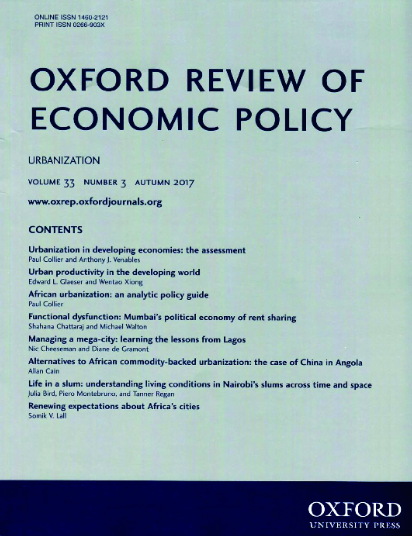The IMF’s journey on capital controls: what is the destination?
IF 1.8
2区 经济学
Q2 ECONOMICS
引用次数: 3
Abstract
The International Monetary Fund’s Articles of Agreement give countries wide latitude to regulate cross-border capital movements, subject mainly to the proviso that such regulations not be used to manipulate the exchange rate for the purpose of gaining an unfair competitive advantage. Beginning from the 1990s, however, the IMF has seemed far more supportive of fully open capital accounts than its legal framework. This can be seen not only in the institutional push to amend the Articles to enshrine fully open capital accounts in the mid-1990s, but also in subsequent speeches by IMF managing directors impugning capital controls and recent attempts to codify a set of highly restrictive circumstances under which countries may avail themselves of external financial regulations. This history suggests that, institutionally, the IMF would be far more comfortable with an architecture in which countries (strive to) eliminate restrictions on cross-border capital movements than with the vision of capital controls enshrined in its constitution by the IMF’s founding fathers, Keynes and White.IMF的资本管制之旅:目的地是什么?
国际货币基金组织(imf)的《协定》(Articles of Agreement)赋予各国监管跨境资本流动的广泛自由度,但主要附带条件是,不得利用此类监管来操纵汇率,以获得不公平的竞争优势。然而,从上世纪90年代开始,IMF似乎更支持全面开放资本账户,而不是其法律框架。这不仅体现在20世纪90年代中期,机构推动修改《章程》,以保证完全开放资本账户,还体现在IMF总裁随后的讲话中,他们抨击资本管制,以及最近试图编纂一系列高度限制性的环境,在这些环境下,各国可以利用外部金融监管。这段历史表明,从制度上讲,IMF更愿意接受各国(努力)消除对跨境资本流动限制的架构,而不是IMF创始人凯恩斯和怀特在其章程中所倡导的资本管制愿景。
本文章由计算机程序翻译,如有差异,请以英文原文为准。
求助全文
约1分钟内获得全文
求助全文
来源期刊

Oxford Review of Economic Policy
ECONOMICS-
CiteScore
12.50
自引率
1.50%
发文量
41
期刊介绍:
The Oxford Review of Economic Policy is a refereed journal which is published quarterly. Each issue concentrates on a current theme in economic policy, with a balance between macro- and microeconomics, and comprises an assessment and a number of articles. It gives a valuable appraisal of economic policies worldwide. While the analysis is challenging and at the forefront of current thinking, articles are presented in non-technical language to make them readily accessible to all readers. The Oxford Review is aimed at a wide audience including government, business and policy-makers, as well as academics and students. It is required reading for those who need to know where research is leading.
 求助内容:
求助内容: 应助结果提醒方式:
应助结果提醒方式:


